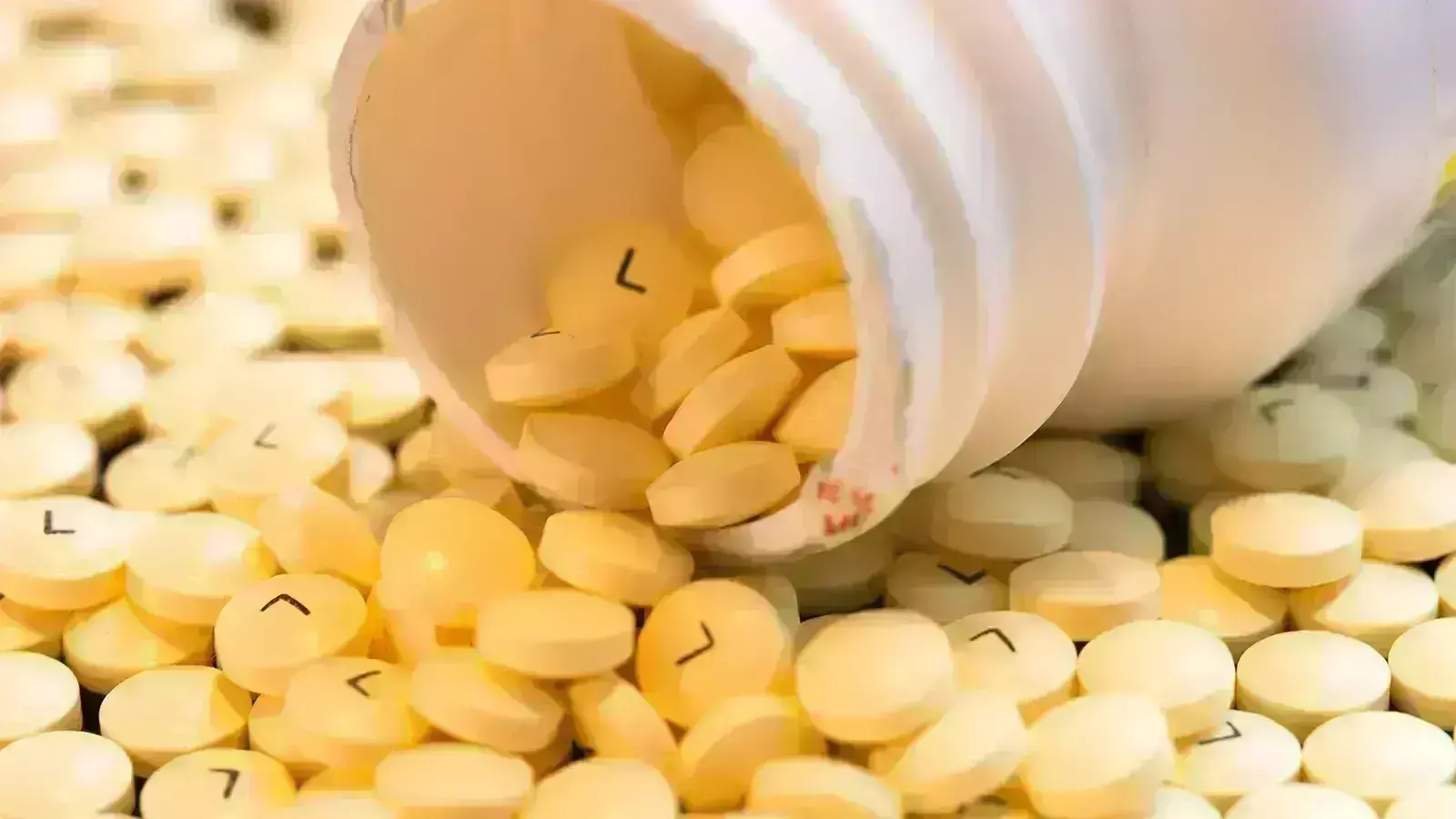- Home
- Medical news & Guidelines
- Anesthesiology
- Cardiology and CTVS
- Critical Care
- Dentistry
- Dermatology
- Diabetes and Endocrinology
- ENT
- Gastroenterology
- Medicine
- Nephrology
- Neurology
- Obstretics-Gynaecology
- Oncology
- Ophthalmology
- Orthopaedics
- Pediatrics-Neonatology
- Psychiatry
- Pulmonology
- Radiology
- Surgery
- Urology
- Laboratory Medicine
- Diet
- Nursing
- Paramedical
- Physiotherapy
- Health news
- Fact Check
- Bone Health Fact Check
- Brain Health Fact Check
- Cancer Related Fact Check
- Child Care Fact Check
- Dental and oral health fact check
- Diabetes and metabolic health fact check
- Diet and Nutrition Fact Check
- Eye and ENT Care Fact Check
- Fitness fact check
- Gut health fact check
- Heart health fact check
- Kidney health fact check
- Medical education fact check
- Men's health fact check
- Respiratory fact check
- Skin and hair care fact check
- Vaccine and Immunization fact check
- Women's health fact check
- AYUSH
- State News
- Andaman and Nicobar Islands
- Andhra Pradesh
- Arunachal Pradesh
- Assam
- Bihar
- Chandigarh
- Chattisgarh
- Dadra and Nagar Haveli
- Daman and Diu
- Delhi
- Goa
- Gujarat
- Haryana
- Himachal Pradesh
- Jammu & Kashmir
- Jharkhand
- Karnataka
- Kerala
- Ladakh
- Lakshadweep
- Madhya Pradesh
- Maharashtra
- Manipur
- Meghalaya
- Mizoram
- Nagaland
- Odisha
- Puducherry
- Punjab
- Rajasthan
- Sikkim
- Tamil Nadu
- Telangana
- Tripura
- Uttar Pradesh
- Uttrakhand
- West Bengal
- Medical Education
- Industry
Panax notoginseng saponins safe and effective alternative therapy of ischemic stroke: JAMA

Daily supplementation with Panax notoginseng saponins is safe and effective alternative therapy of ischemic stroke and may also help functional outcomes after ischemic stroke, a Chinese trial found as published in the JAMA Network Open.
Preclinical and clinical studies have suggested the neuroprotective effect of Panax notoginseng saponins (Xuesaitong soft capsules). However, robust evidence in patients with ischemic stroke is lacking.
A study was conducted to assess the efficacy and safety of Xuesaitong soft capsules in patients with ischemic stroke.
This multicenter, double-blind, placebo-controlled randomized clinical trial was conducted at 67 tertiary health centers in China from July 1, 2018, to June 30, 2020. Included patients were aged 18 to 75 years with a diagnosis of ischemic stroke and a National Institutes of Health Stroke Scale score between 4 and 15.
Eligible patients were randomly assigned within 14 days after symptom onset to receive either treatment with Xuesaitong soft capsules (120 mg orally twice daily) or placebo (120 mg orally twice daily) for 3 months. The primary outcome was functional independence at 3 months, defined as a modified Rankin Scale score of 0 to 2.
Results
Among 3072 eligible patients with ischemic stroke who were randomized, 2966 (96.5%) were included in the modified intention-to-treat cohort (median [IQR] age, 62 [55-68] years; 1982 male [66.8%]). The number of patients who achieved functional independence at 3 months was 1328 (89.3%) in the Xuesaitong group and 1218 (82.4%) in the control group (odds ratio, 1.95; 95% CI, 1.56-2.44; P < .001). In the safety cohort, serious adverse events occurred in 15 of 1488 patients (1.0%) in the Xuesaitong group and 16 of 1482 (1.1%) in the control group (P = .85).
In this randomized clinical trial, Xuesaitong soft capsules significantly increased the likelihood of functional independence at 3 months in patients with ischemic stroke, indicating that this may be a safe and effective alternative therapy to improve prognosis in this population.
Reference:
Wu L, Song H, Zhang C, et al. Efficacy and Safety of Panax notoginseng Saponins in the Treatment of Adults With Ischemic Stroke in China: A Randomized Clinical Trial. JAMA Netw Open. 2023;6(6):e2317574. doi:10.1001/jamanetworkopen.2023.17574
Keywords:
Daily, supplementation, Panax notoginseng, saponins, functional outcomes, ischemic stroke, Chinese trial found, JAMA Network Open, Wu L, Song H, Zhang C
Dr. Shravani Dali has completed her BDS from Pravara institute of medical sciences, loni. Following which she extensively worked in the healthcare sector for 2+ years. She has been actively involved in writing blogs in field of health and wellness. Currently she is pursuing her Masters of public health-health administration from Tata institute of social sciences. She can be contacted at editorial@medicaldialogues.in.
Dr Kamal Kant Kohli-MBBS, DTCD- a chest specialist with more than 30 years of practice and a flair for writing clinical articles, Dr Kamal Kant Kohli joined Medical Dialogues as a Chief Editor of Medical News. Besides writing articles, as an editor, he proofreads and verifies all the medical content published on Medical Dialogues including those coming from journals, studies,medical conferences,guidelines etc. Email: drkohli@medicaldialogues.in. Contact no. 011-43720751


